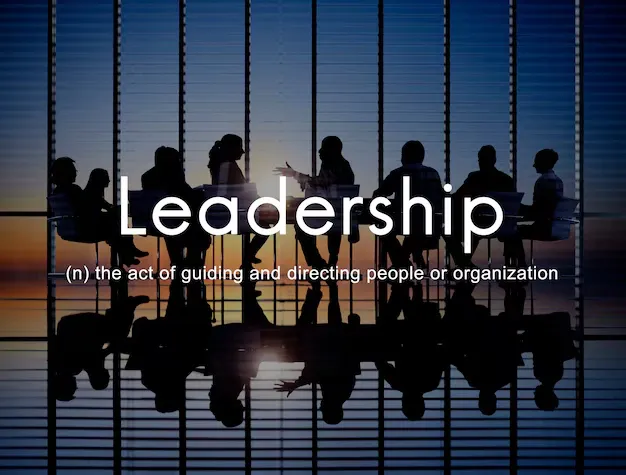The Power of Soft Skills in Leadership: Why They Matter
Updated: 27 January 2026, 5:50 pm IST
Leadership is a crucial role to assume in any organization. But not everybody can be a good leader. To be an effective leader, one must possess a perfect combination of both technical and soft skills. Only technical knowledge may make you a great professional but only a set of soft skills can complete the personality required for a leader who is respected by everybody.
This is why soft skills play an integral role in shaping the personality and prospects of a leader. This blog further discusses some of the key leadership soft skills required to function as effective business leaders:
Click Here to Apply Get Complete Details From Expert
What Are Soft Skills?

Soft skills refer to certain specific personality characteristics in individuals that allow them to interact with co-workers in the office more effectively the nd in turn become successful. This is because these positive traits in employees go a long way in contributing to their overall professional growth and career advancement.
It is these qualities that make these employees appear more attractive to current and prospective employers, contributing to their growth and success.
Importance Of Soft Skills In Leadership

Soft skills are crucial for those in leadership roles. It is this power of soft skills that contributes to overall improvement in team productivity and the achievement of business goals. A team depends on an efficient leader who can display skills like effective written and verbal communication, managing a team with patience, and making spontaneous effective decisions on work allocation.
Strong soft skills enable leaders to motivate and encourage the team toward the completion of targets. Additionally, the team loves to listen and obey an effective leader who displays strong soft skills at work.
Some of the top benefits of having soft skills for leaders are:
- It helps improve engagement with the team, co-workers, seniors, and other concerned stakeholders in the organization.
- It promises improved service to customers and clients.
- It improves the retention rate of employees.
- It fosters healthier team dynamics.
- It enhances team productivity.
Also Read :- Leadership in the Digital Age
Must-Have Soft Skills For Leaders

For good leadership in any organization, the following soft skills are required in a top-role leader:
- Teamwork: Teamwork is crucial in any organization for it to thrive and succeed. This is an essential skill for every employee irrespective of their designation. Be it a fresher or an experienced manager, the skill to work as a team is a must. Leaders or individuals in leadership roles are particularly required to focus on team development throughout their careers as their roles involve frequent interaction with staff and colleagues as well as collaboration with various other teams in an organization.
- Motivational ability: The motivational skill gives leaders the ability to encourage employees to perform better and succeed. By building motivational skills, leaders can inspire their teams and employees to achieve organizational goals and enhance performance.
- Analytical reasoning: Analytical reasoning is another essential quality for leaders to possess as it helps them solve complex problems and identify underlying issues causing such problems. It also helps them to make informed decisions.
- Problem-solving ability: Problems are an integral part of work or organizational culture. Leaders many a time have to deal with problems and challenges, which they are required to solve. As leaders, professionals face logistical issues, challenges in the business processes, and more. To handle these challenges well and find solutions to them is an important skill that leaders must have.
- Organizational skills: Leaders must also possess organizational skills to ensure efficiency and clarity of work and to achieve business goals. Moreover, with organizational skills, leaders can manage resources well and ensure the smooth delivery of team responsibilities.
- Emotional intelligence: Emotional intelligence or the control of emotions is again an important quality that leaders must possess. Leaders must be capable of controlling emotions while identifying them in others as well as communicating them to others.
- Effective written and verbal communication: Communication skills are the topmost priority that leaders must possess. Be it written or verbal, robust skills in both are required to be an effective leader. As leaders, individuals are required to communicate with teams, colleagues, and stakeholders regularly during meetings and presentations where their strong communication skills help.
- Conflict resolution: The ability to resolve conflict at the workplace counts among the strong leadership skills that leaders must possess. Staying focused, taking feedback, and being a good listener are some techniques that can help leaders resolve conflicts.
- Decisiveness: Decisiveness is an important soft skill that helps leaders make quick and effective decisions at work. Whether it's delegating tasks, considering employee ideas, or setting deadlines, being decisive gives clear direction and keeps teams productive.
- Easy adaptability: This quality is a key leadership soft skill that every leader must have. Many times, when companies implement new business policies or processes, situations change. During such situations, being able to adapt to the changes helps in succeeding.
- Creativity: Creativity is a great skill for leaders to possess across industries. Creativity gives way to innovation and ways to improve business processes. Thinking creatively allows leaders to view business problems from a new perspective to help find imaginative ideas to handle them.
Candidates aspiring for leadership roles can pursue the best leadership courses at Amity University Online to boost their careers.
Is Leadership A Soft Skill?

Efficient leaders need an ideal combination of both soft and hard skills. Hard skills are the core technical skills that help demonstrate their professional expertise in their line of work. They could be technical proficiency in the field of IT or medical knowledge in the healthcare sector.
Soft skills, however, demonstrate a different kind of strength that is and should be present to be a popular leader in the professional arena.
When you’re preparing to assume a top managerial role in an organization, it’s important to remember that leadership is a vital soft skill that every leader must have. This means the ability to lead a team with humility, patience, understanding, and emotional intelligence, along with the desired technical expertise in your work area.
How To Develop Soft Skills As A Leader?

Now that we know that soft skills are critical to the success of a leader in any organization, let’s look at how you can develop these skills for your personal and professional growth:
1. Evaluate your strong and weak points: This is the first step on the journey to becoming an effective leader. Do a thorough assessment of your strengths and weaknesses to better understand your improvement areas.
2. Assess your development areas: Once you have determined your weak points, identify the key areas that you need to develop. These could be specific to a particular role you need to assume or a specific industry/sector that you intend to join.
3. Avail learning opportunities: The best way to develop any skill is to learn and grow. And the same holds for developing soft skills as well. Through education and learning, you can develop certain essential soft skills specific to your role/industry. Several online courses exist to assist you in this arena.
These courses or short-term certifications are designed to equip you with the prerequisite skills for success as an organizational leader - emotional intelligence, effective communication, and flexibility.
Take the next step in your career ?
Learn Soft Skills For Leadership On Amity Online
Education doesn’t only teach hardcore technical skills. Soft skills like the ones described in this blog can also be learned and developed through learning. Amity University Online enables you to learn and develop soft skills from the comfort of your home so that you can carry out your professional commitments while preparing yourself for leadership success on the side.
Amity University Online offers a wide array of leadership courses for soft skills training. Find the one that best suits your requirements and can assist you with professional growth and career advancement. Learn more details on soft skills training courses on our website.
Know More About Our Online Programs
Check Out Our Top Online Degree Programs
Explore similar programmes
frequently asked questions
What are soft skills in leadership?
+Soft skills refer to the personal traits and social skills in leaders that enable them to improve their interactions with others and succeed in their roles.
Why do soft skills matter to leaders?
+Soft skills are important for leaders as they directly contribute to a team’s productivity and overall organizational success.
How do soft skills differ from hard skills in leadership?
+Soft skills focus on how you interact with others around you, whereas hard skills reflect your technical proficiency and knowledge expertise in your domain of work.
Which soft skills are most important for effective leadership?
+Conflict management, adaptability, critical thinking, and communication are some of the most important soft skills in leadership roles.
How can leaders develop their soft skills?
+Leaders can develop soft skills by seeking feedback from the team, listening more, and participating in skill development programs like online learning and certifications.
Are soft skills innate or can they be learned?
+Soft skills can be learned and developed through regular practice and training. Some online courses also help acquire the desired knowledge for developing soft skills.

